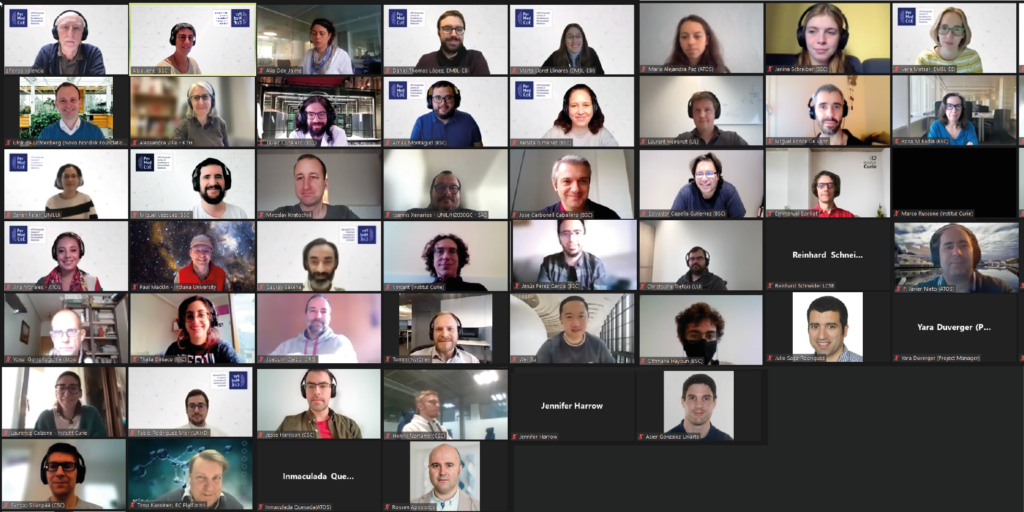
On 27 and 28 October, the PerMedCoE consortium (Barcelona Supercomputing Center, CSC – IT Center for Science, University of Luxembourg, Institut Curie, University Hospital Heidelberg, Atos Spain, KTH Royal Institute of Technology, European Molecular Biology Laboratory – outstation European Bioinformatics Institute, Centro Nacional de Análisis Genómico, Max Delbrück Center For Molecular Medicine, University Of Ljubljana, ELEM Biotech) got together once more for the 3rd General Assembly Meeting (GAM) to communicate and assess the work carried out during the first year of the project. The meeting served as well to adjust strategies to face the challenges for the forthcoming months, taking advantage of the participation of all members of the Scientific Advisory Board, whose feedback was very valuable.
The plenary sessions focused on the first day on the technical developments progress in PhysiCell, MaBoSS, PhysiBoSS, CellNOpt, CARNIVAL and COBREXA, linking to the progress on the optimized workflows composed by building blocks. There were also initial discussions on how the AI toolbox can be implemented in such workflows. Some time was also devoted to the dissemination and training fronts. Training future users of the tools is a key aspect of the project and the intensity of such activities is expected to ramp up even more from now onwards, and a specific separate session was held to discuss the planning of the big final training event in 2023 (summer school). A satellite session was also devoted to strategic discussions of the positioning of PerMedCoE in the exascale future ecosystem in Europe.
The agenda for the second day focused on the four core tool developments driven by the use cases, and on the planning for the Mid-Term Review that will take place in May 2022. There were two dedicated sessions, one to identify exploitable assets, in preparation for the sustainability plan, and a workshop to bring everyone on the same page towards the establishment of the software observatory and the upcoming benchmarking tasks, essential to engage with user communities.
To sum up, the meeting was very productive and served to align strategies and to set priorities towards the midterm project review with the EC, scheduled in May 2022, and which will report on the first 18 months of work (October 2020 – March 2022).





